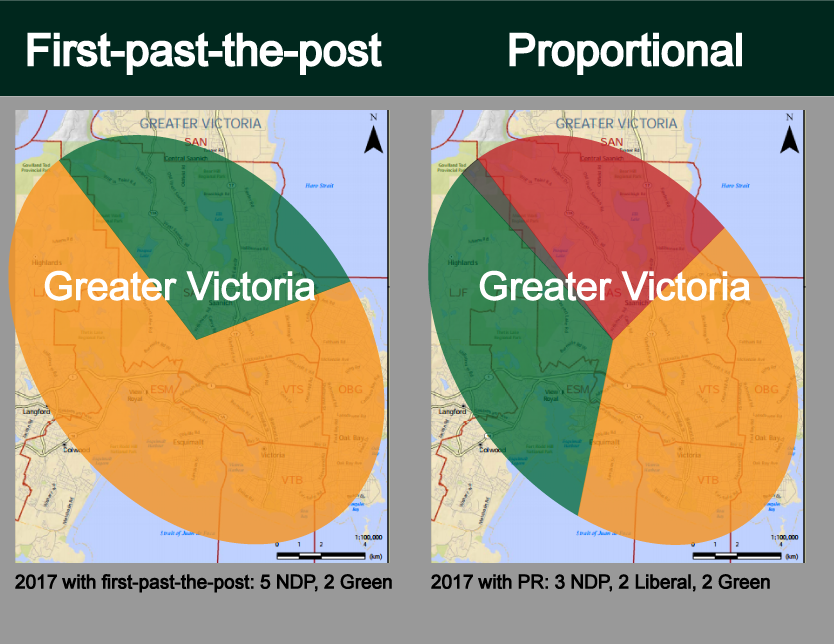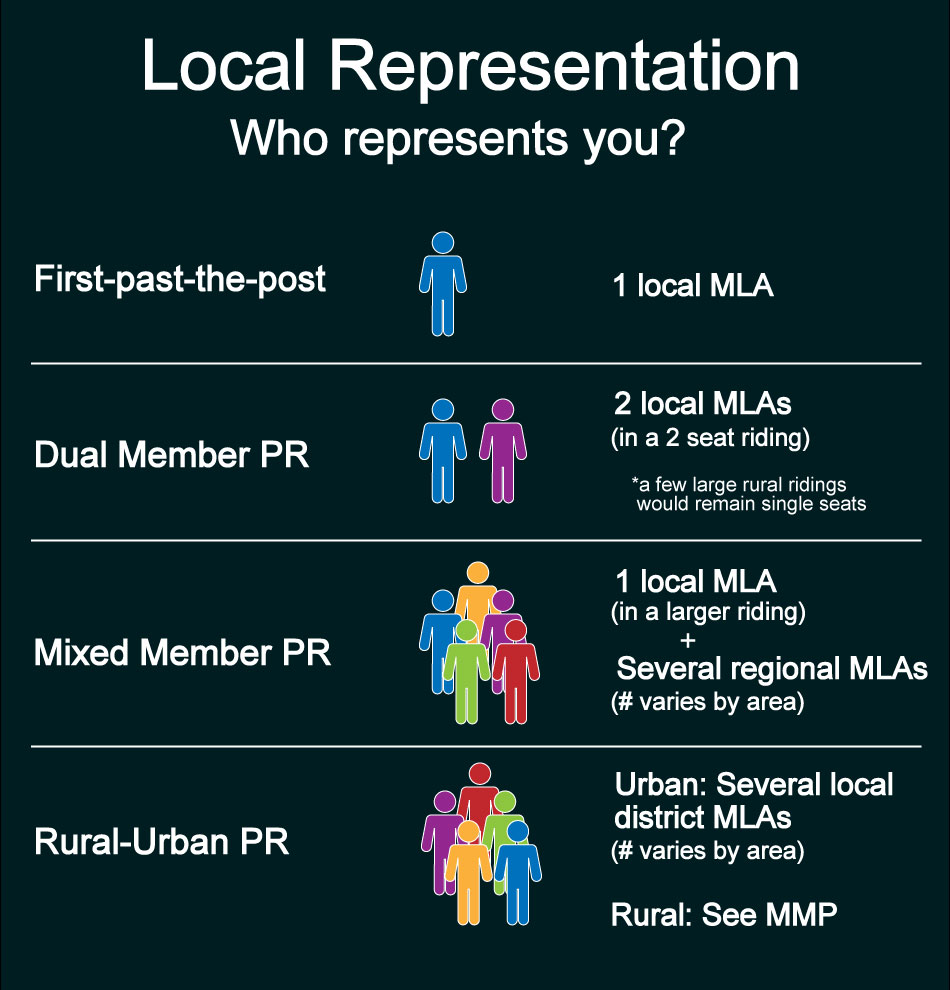
Proportional Representation Means Stronger Local and Regional Representation

- Our MLAs in every region will reflect the diversity of how we voted.
a
Did you know? In the 24 Interior and North ridings, the BC Liberals had 51% support, but won 20/24 seats. In Victoria, about 24% of voters chose the BC Liberals, but they have zero representation.Proportional representation means it won’t be “winner-take-all” anymore – people will be represented in proportion to how they voted.Neither the NDP or Liberals will be able to sweep every seat in a region.
This means that every region will have MLAs in the government and the opposition – and that means a stronger voice for voters in every region.

2. You will have a CHOICE of MLAs go to to with your concerns.
See poster to the right.
3. There will be far fewer “safe seats”. Right now, about 68% of BC ridings are considered “safe seats” where the same party almost always wins. If you don’t support that party, voting can feel futile. It’s easy for MLAs in those ridings to take their jobs and their constituents for granted. Proportional representation will mean that instead of ignoring “safe seats” and focusing on a few swing ridings, all the parties will have to pay attention to all the voters no matter where they live.
Local and Regional Representation Guarantees
There is a lot of misinformation circulating. Please take the time to read the points below.
a
- NO REGION WILL LOSE MLAs. Each region will have at least the same number of MLAs as they do now. It’s GUARANTEED on page 4 of the Attorney General’s report. So claims that power will move to Vancouver or Victoria are patently false.
a - THE CANDIDATES ON YOUR BALLOT WILL BE FROM YOUR LOCAL AREA OR REGION. Or they’re at least as likely to be as now, with first-past-the-post. Occasionally we see a party parachute in a candidate to run in a riding they don’t live in (Example: Christy Clark). Candidates are just as likely to be local as they are now. The regional candidates with Mixed Member Proportional will be the same people running in the local ridings in your region. If you live in Prince Rupert, you won’t have an MLA from Vancouver or vice versa!
a - YOUR MLAs WILL NOT BE APPOINTED BY PARTY BOSSES. None of the proportional models involve “appointed MLAs”, period. For Mixed Member Proportional and Rural-Urban Proportional, the Attorney General has left it up to an all-party committee in consultation with experts to decide if party regional lists would be:
a
a) “open” (you vote for individuals for regional MLAs)
b) closed (you vote for a party only) or
c) “open with party option” (you can vote for an individual or a party).
https://www.fairvote.ca/localrepresentation/
The NDP, the Greens and every electoral reform group are in favour of OPEN LISTS. The BC Liberals obviously don’t like a closed list either. So with nobody interested in closed lists, the only realistic option is open lists.
Authorized by Fair Vote Canada BC, registered sponsor under the Electoral Reform Referendum 2018 Act, (778) 588-9563
Background
In 2015, three parties - the Liberals, the NDP and the Greens, representing 63% of voters - promised that if elected, 2015 would be the last election under first-past-the-post.
The NDP and Greens promised to implement proportional representation. The Liberals promised to end first-past-the-post, listen to expert advice and follow evidence-based policy on electoral reform, and to "make every vote count."